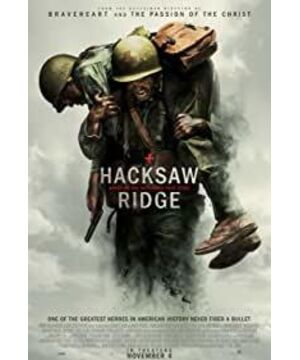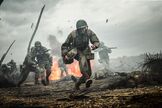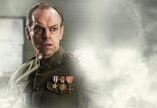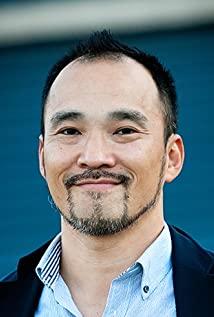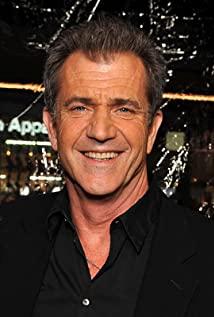Like the Chinese, Americans like to shoot war-themed films, but the perspective and the concept of the film are quite different.
The Chinese like to shoot war films in the way of the Romance of the Three Kingdoms, focusing on the grandeur of the war, strategies and surprises, and the grandeur of the war. In essence, most wars filmed by Chinese people are epic-themed films. Emphasize the national will, emphasize the spirit of soldiers, and emphasize the positive meaning of war itself. And in the minutiae, they all show the grandeur of the country and the spirit of great patriotism.
American war films (especially films after the 21st century) were shot using the Water Margin method. There is not much written on the war itself and its historical significance, but it will use a personal perspective to show the impact of war on individuals and where each person will go in the war. In Hollywood movies, war is a force majeure. Any character, whether willing or not, will always be involved in this event, expressing the glory of humanity, great persistence, etc. through what happened in the magnificent war.
so,
Saving Private Ryan is to think about human nature from a moral perspective;
Pearl Harbor is thinking about human nature from the perspective of love and friendship;
The bloody battle against Hacksaw Ridge is to think from the perspective of religion and see through human nature.
The bloody battle against Hacksaw Ridge, from a personal point of view, is the experience of a coward who refused to use a gun to turn over on the battlefield. From the perspective of the plot, this is a process of miracles in war. This film is actually full of strong American patriotism. In essence, it is no different from a domestic war movie, except that the content of the expression is relatively different.
And the connotation emphasized by the film is the kind of spirit that balances the fraternity of religion and the perseverance in war. Therefore, the justice/unjust nature of war is blurred to a certain extent.
In war films, whether it is the bravery and fearlessness of Stallone or the Odysseus-style conspiracy, they have all been badly filmed. The spirit of fraternity and persistence in fighting that this film emphasizes, although seemingly contradictory, is very real and vivid in the war. The main creator of the film did not stand on either side of the war, but viewed the war from the perspective of God.
The introduction of religious elements has also been filled with the popular foundation of the United States. Through the role of the male protagonist, the film has successfully integrated religious fraternity into the cruel battlefield. Although the cruelty of the battlefield reflects the blood type and is real, after the end of the film, what the audience can imagine and feel is still greatness and miracles.
The United States is a Puritan country, essentially conservative and anti-war. They do not have the crisis awareness of Japan and are unwilling to actively participate in wars, but when national interests are harmed, the traditional western cowboy spirit will be inspired, just like the protagonist of the film, immediately join the army and serve the country. .
In my opinion, the protagonist’s greatness is not only due to his miracles on the battlefield. It is also his perseverance. The so-called miracles are the result of persistence. The protagonist’s mentality to join the army is actually the key that the film has always emphasized. He was willing to defend the country and was very persistent, but he refused to use weapons to kill people. For this reason, he endured the language violence, cold violence of his teammates, and pressure from his superiors. In that plot, you can feel the pain of the hero. Long periods of incomprehension, disagreement, verbal abuse and endless mockery, as well as physical bruises, are actually more than the pain that a normal person can endure. And the male lead really survived.
After the war began, the male lead always rushed to the front line. He saved many people from the dead, but many people died because of their injuries. This is a pain that is powerless before death.
And the idea of refusing to use guns to kill people created a deeper pain for him. He could only fight his opponents with his bare hands, and this kind of unarmed weakness caused him to face death several times, so that when he was sleeping in the trenches, he had a nightmare that he was surrounded and killed by Japanese soldiers.
Obviously compromise can protect yourself, but the male lead just insists. And this persistence caused more pain.
It can be said that in the first half of the film, the audience and the male lead came through this endless deepening pain. The male protagonist has always insisted, and with the fierce battle situation, this kind of persistence is actually more difficult than violating the oath and directly carrying the gun and fighting with the opponent.
The meaning of persistence began to appear in the second half of the film. After the company retreated, there were still wounded with huge data too late to retreat, and this became a space for the male protagonist to show their talents. On the one hand, there is no need to use a gun, on the other hand, it can save people. At the beginning of the film, the hero's persistence began to bear fruit. In the first half of the episode, persistence brings endless pain, while in the second half, constant persistence saves more lives.
The male protagonist always thinks that he is using God's power to save people, and he keeps praying to God to save one more and one more. Even the target of his rescue is not limited to the US military, but also includes some Japanese. I don't quite understand what kind of mentality this is. But I admire this behavior. The film calls it a miracle, without exaggeration. Only God can save lives desperately in the Shura Field, and only God can help both the enemy and us indiscriminately.
The foundation of miracles is persistence, and the emphasis on persistence at all levels reflects the character of the protagonist and the brilliance of the protagonist very truly. Completed the synergy between God and man. When you see the scene of the male protagonist sliding down the mountain along the stretcher at the end of the film, isn't that the birth of a god?
View more about Hacksaw Ridge reviews


